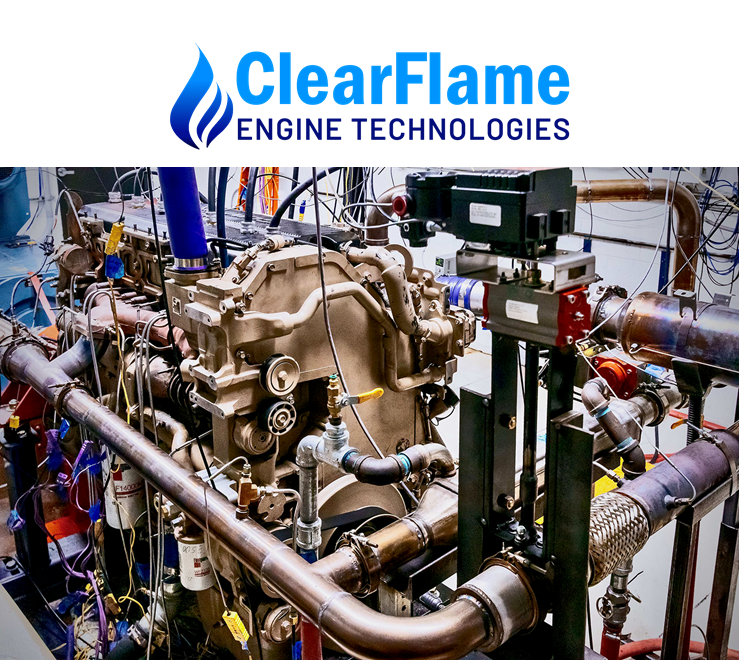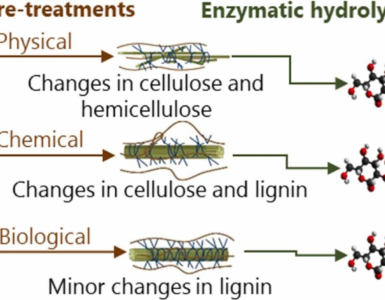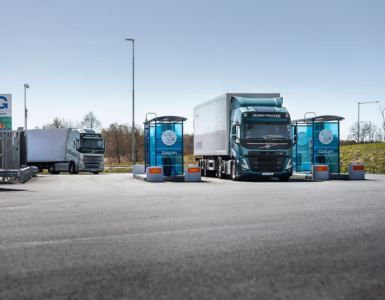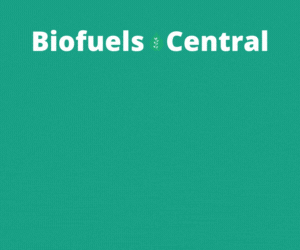Independent study confirms cost savings & emissions advantages for heavy-duty trucks running ClearFlame Engine modification technology for biofuels.
Study by Gladstein, Neandross & Associates highlights ClearFlame’s ability to help fleets lower total costs while meeting sustainability goals sooner than current alternatives.
ClearFlame Engine Technologies, an Illinois-based company empowering rapid decarbonization for global heavy-duty industry, announced the publication of an independent study that finds ClearFlame’s technology could help fleet owners and other heavy-duty truck operators lower total costs while meeting sustainability goals sooner than currently available alternatives.
The study was conducted by Gladstein, Neandross & Associates (GNA) and commissioned by ClearFlame, whose investors include Bill Gates-founded Breakthrough Energy Ventures, John Deere, Mercuria, and Clean Energy Ventures. It analyzed the total cost of ownership (TCO) and expected emissions performance of ClearFlame’s proprietary engine modification technology in the over-the-road heavy-duty truck market versus other options.
🔥 What about we co-host a webinar? Let's educate, captivate, and convert the biofuels economy!
Biofuels Central is the global go-to online magazine for the biofuel market, we can help you host impactful webinars that become a global reference on your topic and are an evergreen source of leads. Click here to request more details
Study Highlights:
- ClearFlame-enabled trucks are expected to have the lowest TCO when compared with diesel, natural gas, electric, and hydrogen platforms.
- ClearFlame’s cost per mile is expected to be substantially lower than electric and hydrogen platforms—40% less than electric and 30% less than hydrogen.
- ClearFlame can provide a quick and cost-effective path to substantial reductions of greenhouse gas (GHG) and tailpipe emissions compared to other sustainable fuels and technologies, whose practical challenges, such as cost, range, infrastructure, and fuel availability, have slowed adoption.
- ClearFlame is estimated to provide a 42% lifecycle carbon reduction compared with diesel, as well as approximately 22% lower GHG than battery electric vehicles based on the national average grid mix.
The TCO analysis was conducted when diesel fuel’s national average was $3.48 per gallon in October 2021 and found that ClearFlame-enabled trucks would have a lower TCO than diesel by $0.08 per mile, lower than natural gas by $0.09 per mile, lower than electric by $0.97 per mile, and lower than hydrogen platforms by $0.61 per mile.
The report also highlights the potential for even greater GHG reductions using other feed sources developed by the ethanol industry with lower carbon intensities.
For instance, further improvement to ethanol production processes—such as utilizing more corn fiber and stover, or adding carbon capture to production facilities—would result in GHG emissions reductions of 69-83% compared with diesel, depending on the region.
The report further highlights that ClearFlame can significantly reduce tailpipe PM2.5 by 99%, DPM by 100%, and SOx by 95% relative to traditional diesel fuel.
While ClearFlame’s technology is expected to meet all the same emissions regulations for modern diesel engines, it is also fully expected to meet the stricter standards being enacted by California’s Low NOx Heavy-Duty Omnibus Regulation and proposed by the U.S. EPA, without the additional cost and complexity facing diesel engines.
Finally, the report also finds that while electric and hydrogen platforms have the potential to provide zero tailpipe emissions, these technologies are far from being commercially available for long-haul trucking, and fueling and charging infrastructure remains a significant barrier, as do the costs per mile.
As a result, technologies like ClearFlame are one of the only options to quickly provide cost-effective GHG and tailpipe emissions reductions for fleets. ClearFlame is on track to conduct on-road testing with select fleet partners beginning in Q2 of this year.
Patrick Couch of Gladstein, Neandross & Associates, said:
This study clearly shows that ClearFlame’s technology can provide significant and cost-effective GHG and tailpipe emissions reductions in the immediate future.
“While most of the discussion around sustainable fuels today focuses on compressed natural gas, battery-electric, and hydrogen fuel cell vehicles, alcohol fuels have the potential to play a valuable role in sustainable transportation.”
“ClearFlame’s engine technology and ethanol fuel supply model could address the historic barriers to the adoption of ethanol fuels in the heavy-duty market.”
BJ Johnson, ClearFlame’s CEO and Co-Founder, added:
This study validates what we’ve been saying for some time—ClearFlame’s engine modification technology not only takes the dirty diesel out of diesel engines, it is also less expensive in total cost of ownership than diesel, electric, natural gas, and hydrogen.
“Moreover, ClearFlame offers a sustainability solution that is rapidly implementable at scale. It’s critical that emission reductions begin as quickly as possible if we are to meet our 2050 net-zero greenhouse emissions goals.”
“There is no such thing as a perfect silver bullet, so we need to embrace all technologies available to us – and it’s an easy choice when that technology also offers substantial cost savings.”
Julie Blumreiter, ClearFlame’s Co-Founder and Chief Technology Officer, noted:
ClearFlame’s technology is fuel agnostic, and our ability to run on clean, low-cost and readily available 100% plant-based biofuels allows us to capitalize on the 15 billion gallons of ethanol already produced in the U.S. each year; a fuel source that is both abundant and has a path to net zero, and even net-negative status.
“Further, it enables us to leverage existing fueling and charging infrastructure, all while utilizing tech already familiar to fleets and the 250k+ trained diesel mechanics across the U.S.”
ClearFlame spokespeople will be on hand to discuss the results of the TCO study at the 2022 Advanced Clean Transportation (ACT) Expo in Long Beach, Calif. May 9-12, Booth 339 and will showcase their class 8 truck onsite at the show as well.
To download the study, please visit http://clearfla.me/tco-pr.
About the Study
The independent study was commissioned by ClearFlame Technologies and conducted by GNA Clean Transportation & Energy Consultants. ClearFlame was allowed to comment on the study protocol and was provided with a report of the results. The study results were not impacted apart from suggestions for clarification.
The model evaluates various platforms in Class 8 over-the-road applications, a market that is assumed to be well suited to the ClearFlame technology as vehicle range, weight, fuel costs, fuel availability, and fueling time are key concerns in this application.
The TCO model evaluates the following cost components for each technology: Vehicle Purchase Cost, Federal Excise Tax, State Sales Tax, Vehicle Maintenance, Vehicle Insurance, Fuel Costs, Depreciation Tax Benefits, Incentives (RFS and Low Carbon Fuel Standard), Residual Value.
The net cash flow over the useful life of the truck (8 years) is used to calculate the average cost per mile (CPM) for each of the technologies. The average annual mileage for this analysis is 101,000 miles, based on the US EPA MOVES model default value for Class 8 long-haul semi-tractors.
About ClearFlame Engine Technologies
At ClearFlame Engine Technologies, we’re breaking the bond between the diesel engine and diesel fuel, accelerating the path to true emissions reduction for the heavy-duty and off-highway markets.
Our technology meets global sustainability goals using decarbonized liquid fuels available throughout the world.
Our technology lowers costs by negating the need for complex aftertreatment technologies without compromising the practicality or performance of traditional diesel engines. For more information, visit www.clearflame.com, and follow us on LinkedIn and Twitter (@ClearFlameEng).
READ the latest news shaping the biofuels market at Biofuels Central
Independent Study Confirms Cost Savings & Emissions Advantages for Heavy-Duty Trucks Running ClearFlame’s Engine Modification Technology, GENEVA, Ill., April 29, 2022








